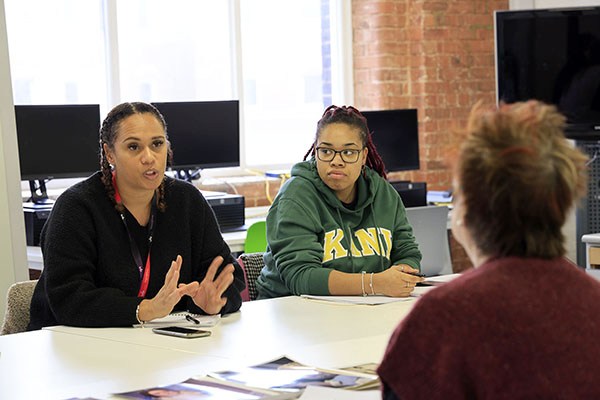Where’s the next generation of theatre makers?
22nd September 2023We’ve seen the recent headlines: “GCSE arts entries plummet for ninth year in row, 'alarming' data shows” and “Languages and creative arts losing favour with GCSE and A-level students”. What does it mean for our industry’s future?
GCSE and A-Level results this year continue to show the gradual decline in the number of students studying the arts over the last decade. This year creative subjects such as performing and expressive arts, music, drama, and art and design have seen the biggest drop.
According to the Times Educational Supplement (TES), 8,340 A-Level students in England sat drama this year, which is down from 8,923 in 2022. 5.4% received an A*, compared with 14.9% in 2022 and 4.3% in 2019.
For GCSE, performing arts had just 6,835 entries this year, which is down 17% from last year and a fall of 72% since 2010. The pass rate in drama was 75.9% this year, a fall from 80.8% in 2022 and up from 74.2% in 2019.
The results show that students continue to opt for the ‘vocational subjects’ such as computer science, IT and business, which is pushing drama further down the table.
Why is this?
If you remember back to 2021 when Gavin Williamson was Education Secretary, he said: “The record number of people taking up science and engineering demonstrates that many are already starting to pivot away from dead-end courses that leave young people with nothing but debt.”
When he spoke about “dead-end” jobs he was referring to arts, drama and languages. This is when he had the great idea to reduce the Government subsidy to the arts by nearly 50% and pump it into science, maths and technology.
Even Rishi Sunak recently "spoke of his wish to turn Britain into one of the great hi-tech economies of the world". What hope do we have?
The government clearly has a lack of understanding of the arts and its importance to young people’s education and wellbeing, otherwise they wouldn’t be making these detrimental cuts.
As I’ve said before, having access to the arts is vital to us all, particularly from a young age. It enriches our lives, brings creativity into all we do, adds value and contributes to our learning by providing us with key skills such as communication, discipline, concentration and self-esteem.
Some children may not be able to sit still and concentrate during a maths class, but they come alive on the stage. We all have different skills and abilities – the more ‘vocational subjects’ are not for everyone and nor should they be. Art and creative opportunities cannot be taken away from the classroom.
The narrative coming from the country’s leaders is highly disruptive to our industry. These huge cuts to young people’s arts and culture education are damaging not only their future, but the arts too.
The creative sector is worth more than £111.7bn in gross value to the UK. That’s more than the automotive, life sciences, aerospace, oil and gas industries combined. With this eye-opening statistic, why are we not getting the support we deserve? Why are young people not being shown the pathways or opportunities within the arts? Where’s the next generation of theatre makers?
So, for us, it falls down to these three things:
The funding cuts in arts subjects at schools and higher education. Schools no longer have the provisions, resources or the support to create inspiring and meaningful lessons. For some schools drama has already been removed from the curriculum.
The shortage of specialist teachers, including drama. The passionate drama teachers who help instil creativity, inspire imaginations, and boost skills and confidence in young people are in short supply or non-existent. In state-funded secondary schools in England alone, the number of drama teachers has fallen by 22% since 2011.
The financial cuts to the theatre industry. Sadly, the theatre industry is still in recovery mode, but with constant funding cuts we still have a long way to go.
Are our industry news stories also deterring young people from entering? Just over the last few months, we have seen stories that cover low pay, bullying, lack of diversity and more. The thought-provoking and insightful studies from Freelancers Makes Theatre Work has also raised questions about our industry’s wellbeing. Are these honest depictions of our industry also helping to push new blood away?

If drama can’t be taught in the classroom, it will only be the privileged who will be able to afford to participate in the arts.
This can’t happen. Arts and culture should be available and accessible to everyone. It’s a medium for expression, which everyone is entitled to.
We need to encourage people into the sector and show them the possibilities, and the classroom should be where all this starts. This is the time to get young people’s imaginations fired up with inspiring teachers.
With cuts and without the right funding, we can’t do this. We now have the challenge of fewer creative subjects, teaching careers and new talent coming into our industry.

At The Play’s The Thing Theatre Company, we host interactive and engaging workshops for schools and colleges to empower students and equip them with the right tools to get them motivated by the arts. We want to play our part in inspiring and training the next generation of theatre makers.
The ongoing decline in arts subjects must be taken seriously. Urgent reform is required.